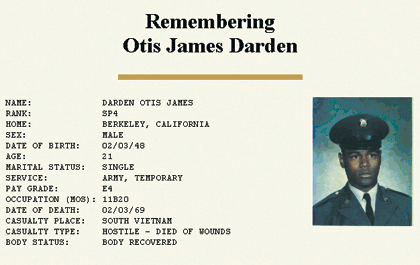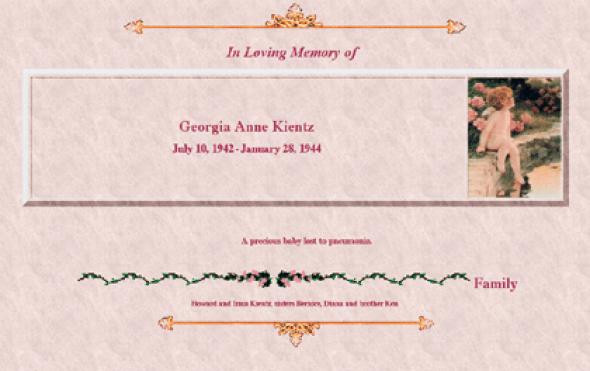Defying Eternity And The Hereafter (D.E.A.T.H.)
The Internet is having interesting effects on the laws of supply and demand, says moonlighting grave-spotter Josephine Berry
Oh for the blessed release of death. Never to have the meaning of your existence cast into doubt by the callous automations of call answering systems, never to have to watch your past year abstracted into transactional tabulations for your accountant's (anal) pleasure, never to have to consider how you've internalised your pin code and bank account numbers as deeply as your mother's name. Death as a leap into postlinguistic nothingness, as a release from the weight of information.
That may be true for the dead, but for those of us who remain it's just a load of romantic, post-God, pre-Internet, lacecuffed guff. The absence left by death quickly becomes a giant vacuum cleaner sucking up information like so much carpet fluff. The Internet is awash with online memorials linking the dear departed to a cornucopia of interests. Death, for example, breathes life into prodemocracy movements, right wing nationalism, virtual communities, bad poetry, commercial enterprise, cheesy web graphics, the media machine and above all the construction of ever more tenuous metaphors.
The gothically named imminentdomain.com has got to be one of the most gratuitous examples of death as the precondition of (economic) life theory. In this graveyard of design cum memorial salesroom, death is laid out on informatic slabs. For just $9.95 and upward the dead one can be converted into a 'bronze', 'silver' or 'gold' standard webpage. Where once money might have bought you a finer quality of carving or a prime site in the graveyard, now it buys you more word space for your epitaph and pictures per page. But the breaks with tradition are far easier to take than the continuities. In the memorial section of the site the alphabetically grouped plaques are slotted into virtual plots arranged as tables, each empty cell emblazoned with the implausible words: “This Area is Available”. The idea of spatial scarcity in cyberspace (a finite number of virtual plots) seems about as likely as overcrowding in hell.

In fact it is exactly the potential infinity of cyberspace which makes it attractive to would-be memorialists, not least in the age of graveyard plot leases and land shortage. Ironically, these cramped earthly realities have become the modern day companion to death's characteristic infinity. In an anonymous poem to Jewish death on the geocities' Athens Acropolis site a line runs, “I hadn't defended my soil, I had no soil to defend” and a later one concludes: “Flesh therefore is no more than snow's shell.” The wandering Jew who finds dominion in heaven is a good illustration of how death paradoxically mixes the affirmation of boundaries with territorial collapse. Linguistic philosophers and psychoanalysts contend that death gives rise to language and language in turn kills the thing it names. Our means of disposing with and memorialising the dead plants this logic at its core: the static grave is a launch pad that projects souls into the cosmos while scattering ashes to the wind is a gesture that demands we keep them locked in our hearts.
But what can we say of the online memorial? While looking for details of Jim Morrison's grave at Pere Lachaise, I stumbled on a clue. www.pere-lachaise.com would seem like an obvious place to start but instead what it triggered was something unexpectedly terminal. The URL flips you straight into a sales pitch by the so-called World Bank who are trying to flog the domain name which they've had the dubious foresight to register. Not only is territorial scarcity imposed on cyberspace but whole virtual graveyards nominally occupied by wily entrepreneurs. Quite apart from the obvious associations this conjures up between capital and death, this commercial decision to buy up the name of death's domain is certainly no coincidence. Far from digital souls tripping eternally through the buttercup strewn rhizome, they become bargaining chips in the eternal transactions between information and capital, language and death. Like the dank confines of the earthly grave in which infinity lurks, the boundlessness of cyberspace and death – cyberdeath – becomes a festival of naming, boundary setting and information trading.
Josephine Berry<josieATmetamute.com>
Mute Books Orders
For Mute Books distribution contact Anagram Books
contact@anagrambooks.com
For online purchases visit anagrambooks.com








